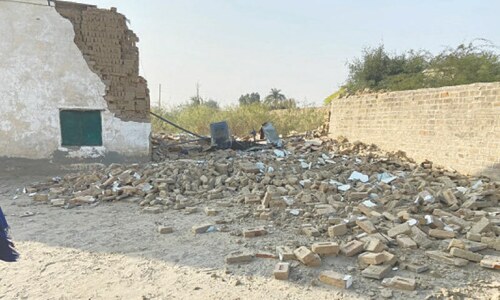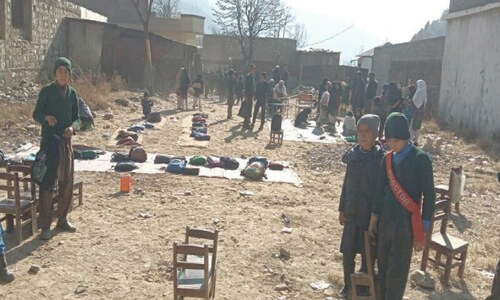PESHAWAR, Jan 2: The provincial health department has contacted the chief secretary for consent to free treatment of chronic myeloid leukemia sufferers from Afghanistan at the oncology ward of Peshawar's Hayatabad Medical Complex.
Three months ago, the department had a three years understanding with a multinational pharmaceutical firm to bear the expenditure of 800 patients of chronic myeloid leukemia, a cancer of white blood cells, at the complex.
Eighty per cent of the treatment cost will be paid by the firm, while the rest will be borne by the provincial government.
Afghan nationals are not entitled to the facility and officials fear that their treatment under the venture could raise serious audit objections.
According to them, written instructions have been sought from the government on the matter.
Officials told Dawn that around 25 Afghan sufferers of chronic myeloid leukemia with proof of registration (PoR) cards had already been availing themselves of free diagnostic service and treatment at the complex on the chief minister's verbal orders.
They said of late, 22 more Afghan nationals, who didn't have PoR cards and carried passports only, applied for the said free treatment to the department's confusion.
Officials said of the 330 patients registered for the programme, 185 were under treatment and that Rs28.5 million worth of medicines had been supplied to the complex for it.
According to them, annual treatment of every registered patient is to cost Rs1.4 million of which Rs0.214 million will be borne by the government.
When contacted, Professor Dr Abid Jamil, head of the Hayatabad Medical Complex's oncology ward, confirmed that the government's advice had been sought on free treatment of Afghan chronic myeloid leukemia victims over audit objection fears.He said around 200 patients admitted to Lahore's Shaukat Khanum Memorial Cancer Hospital, Peshawar's Institute of Radiotherapy and Nuclear Medicines and Islamabad's Shifa International Hospital had already been registered for treatment under the programme lasting eight years.
Professor Dr Abid said unlike Europe, where people got chronic myeloid leukemia at the age of 40 to 50 years, Pakistan suffered from this cancer of white blood cells at 30 years and below.
He said registered patients would undergo treatment for eight years under the programme and that they were required to visit their physicians for blood test and increase or decrease of oral medication dosage.
According to him, several studies conducted in top health institutions have shown that 80 per cent of chronic myeloid leukemia patients are curable given that they pursue treatment regularly.
“All patients don't need medication. Patients coming in early stage of the blood-related disease stand better chances of treatment. Patients can continue to work during treatment,” he said.















































Dear visitor, the comments section is undergoing an overhaul and will return soon.